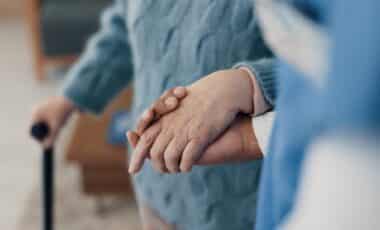The Department for Work and Pensions (DWP) has confirmed upcoming changes to the Personal Independence Payment (PIP) rules, which could affect individuals receiving Universal Credit and dealing with health issues.
The changes are expected to provide additional financial support to those who face daily challenges as a result of a health condition, disability, or mental health disorder.
These changes may provide greater assistance to eligible claimants, though specifics from the DWP remain limited. According to Devon Live, the exact details of the proposed adjustments are still unclear, and many are waiting for further clarification in the coming months.
Understanding the Personal Independence Payment (PIP)
PIP is a non-means-tested disability benefit designed to assist individuals who need help with daily tasks as a result of a health condition.
It is available regardless of employment status and can be received alongside other benefits, including Universal Credit.
Notably, the higher rates of PIP can provide claimants with up to £749.80 every four weeks, separate from other financial support.
How Universal Credit and PIP Are Combined
For single claimants over 25 years of age, the standard allowance for Universal Credit is £400.14 per month.
When combined with the higher rates of PIP, recipients could receive a total of £1,149.94 monthly. This total combines the higher rate of PIP with the standard Universal Credit allowance.

However, the actual entitlement may vary depending on the individual’s eligibility for additional elements or deductions applied by the DWP.
PIP Assessment and Rates
PIP is not awarded solely based on the diagnosis of an illness or disability, but rather on how the condition affects a person’s daily life. There are two main components of PIP: the daily living component and the mobility component. The daily living component includes two rates:
- Standard rate: £73.90 per week
- Higher rate: £110.40 per week
The mobility component offers:
- Standard rate: £29.20 per week
- Higher rate: £77.05 per week
These amounts are weekly figures, which provide a more precise understanding of the benefit’s impact.
Proposed Changes to PIP Eligibility
From November 2026, the eligibility criteria for the daily living component of PIP will change.
To qualify for the standard rate, claimants will need to score between 8 and 11 points across various activities. To receive the higher daily living rate, claimants will need to score 12 points or more.
However, under the new rules, claimants will also need to score at least 4 points in at least one specific activity to be eligible for the daily living component.
This means that individuals who currently qualify by scoring lower points across a range of tasks may no longer be eligible for the daily living portion of PIP after the reform is implemented.









